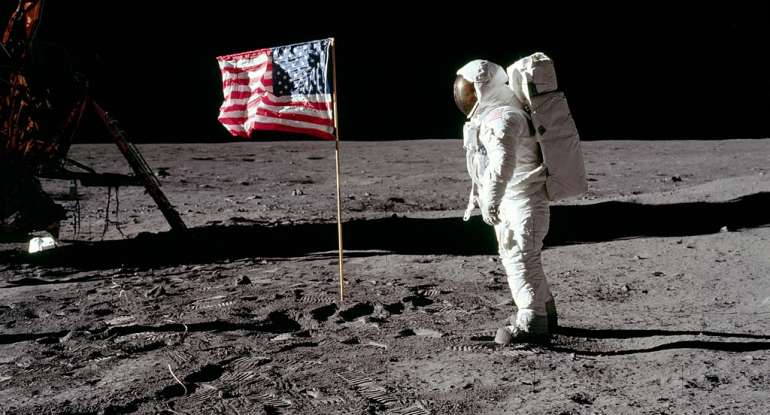
Health Ranger Mike Adams recently interviewed New York Times best-selling author and content creator Mike Bara about his research on Mars, as well as the possibility of ancient civilizations existing on the Red Planet.
Bara discussed his work with the Health Ranger in Brighteon Conversations, and the full interview is available at Brighteon.com.
Cydonia and the pyramids
In particular, Bara talked about his research on Cydonia, a Martian region known for having an eerie face as one of its features. The region takes its name from Kydonia, a city-state in ancient Greece.
Cydonia, a two-kilometer long mesa, first gained prominence after the Viking 1 orbiter imaged the area in 1976. Initial photographs showed what looked like a human face; however, the National Aeronautics and Space Administration dismissed this as a "trick of light and shadow."
A second pass-through at the region -- this time, at a different angle -- confirmed the existence of what's now referred to as the "Face of Mars."
Bara also added that aside from the Face of Mars, the region featured another unnatural structure: the D&M pyramid, which had angular peaks -- much like the ancient Egyptian structure. The unnatural feature was named after NASA engineers Vincent DiPietro and Gregory Molenaar, who independently discovered it while examining NASA archives. These images fueled widespread speculation, particularly about what could have caused it and whether it was made by alien life.
Another interesting area is found north of the "face" in Cydonia, called "the city." The area is home to other pyramid-like structures that are arranged in a circular pattern around a series of smaller rocky features -- a place known as the "city square."
Thanks to the Viking orbiters' images, Bara believes that the Cydonia region itself is unnatural and that the "Face of Mars" may serve as proof that a human-related civilization was once in the area.
In 2009, Bara, together with co-author and fellow Cydonia researcher Richard Hoagland, released a book called “Dark Mission: The Secret History of NASA,” which debunked the many lies NASA told to cover up the truth about Cydonia.
For anyone curious about the Cydonia region, studying high-resolution images from Mars orbiters will reveal the artificial nature of the face and the D&M pyramids. Bara also added that the region has other artificial structures that are architectural in nature.
Not everyone thinks things through
During the interview, Adams also asked Bara about his thoughts on people who don’t think the Moon landings were real.
“[They’re] stupid,” Bara answered bluntly. As a retired aerospace engineer, Bara shared that his work taught him how to think things through.
He also talked about how America’s educational system has failed students, which has resulted in more people not knowing how to think for themselves and ask critical questions.
According to Bara, NASA itself started the rumor that the Moon landings were fake to cover up the real reason for the missions, which was to investigate alien structures on the Moon itself. When people see or hear about things that don’t make sense, they assume that the secrecy surrounding the Moon landings was because the missions didn’t push through. (Related: Experts clarify the role of the Pentagon’s newest UFO task force.)
However, NASA just didn’t want the public to know about how it tried to recover ancient alien technology, said Bara.
But not everyone has a clear grasp of science, physics and technology, and they’re easily fooled by videos posted online by people who also have no idea what they’re talking about. These individuals also fall victim to false belief systems, like the Earth is flat or that the Moon landings are fake.
Bara emphasized the importance of education and scientific understanding because the Moon landing conspiracy theories don’t hold up against the slightest bit of scrutiny.
Visit UFO.news for more articles about the search for alien life and the wonders of space.
Watch:
Sources include:
Please contact us for more information.





















